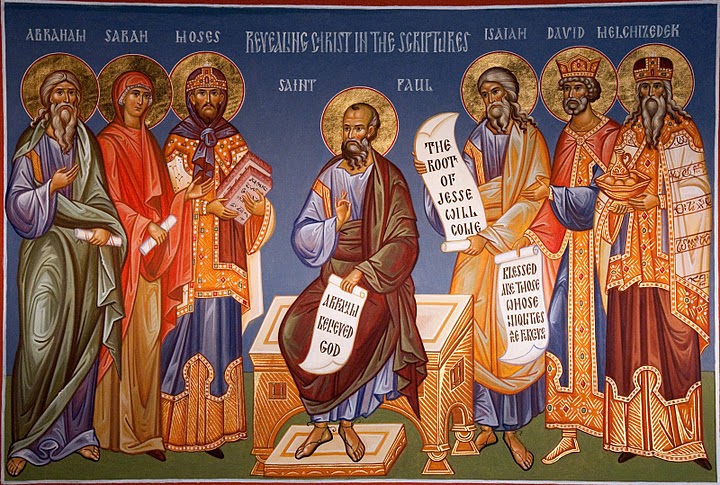In the grand tapestry of human spiritual evolution, the concept of Prophets holds a significant position across diverse religious narratives. For Bahá’ís, this understanding reaches an intriguing zenith with the notion of “The Prophets Who Know Know.” This phrase evokes reflections on the role of Prophets as elucidators of divine will, as well as their connections to humanity and each other. The challenge we face here lies in contemplating: How do these Prophets communicate truths that transcend time, culture, and circumstance, and can we, in our modern context, truly grasp the profundity of their insights?
This exploration begins with defining what constitutes a Prophet within the Bahá’í Faith. Unlike in some traditional narratives, Bahá’ís regard Prophets, or Manifestations of God, as figures who bring a new, divinely inspired message to humanity, while simultaneously embodying attributes of prior Manifestations. This perspective highlights an essential Bahá’í doctrine—the continuity and progressive revelation of religious truth. This raises an engaging question: What does it fundamentally mean to possess knowledge that knows? Furthermore, how can one discern the complexities interwoven in the fabric of their teachings?
At the core of the Bahá’í teachings is the belief that God communicates with humanity through these Manifestations. They serve as intermediaries, offering insight and guidance pertinent to the needs and capacities of the eras in which they appear. Bahá’ís recognize numerous Manifestations, including Moses, Jesus, Muhammad, and most recently, Bahá’u’lláh, the founder of the Bahá’í Faith. Each of these individuals distilled divine wisdom appropriate to their respective contexts and societal challenges, reflecting the unique spiritual needs of their followers. This prompts us to consider: How does the context of a Prophetic message shape its reception and relevance?
The teachings espoused by these Prophets are often framed around principles that remain resonant through the ages—unity of mankind, elimination of prejudice, the harmony of science and religion, and the importance of justice and compassion. However, integrating these teachings into the fabric of everyday life can pose a considerable challenge. For instance, how do we actively cultivate unity in an era defined by division and animosity? The teachings urge adherents to embody principles of love and understanding, yet the task of interpersonal reconciliation often appears Herculean in contemporary society.
Each Manifestation articulates an understanding of human nature that is viscerally profound. They engage with fundamental existential queries regarding identity, purpose, and destiny. Through their promulgations, Prophets invite individuals to explore their intrinsic capacity for knowledge and growth. In turn, adherents are encouraged to lift the veils of ignorance that obscure true understanding. Yet, another question arises: What tools and methodologies can one employ in this pursuit of illumination?
The sacred texts central to Bahá’í teachings, including the writings of Bahá’u’lláh and ‘Abdu’l-Bahá, serve as enlightening resources to navigate this path. These texts not only delve into spiritual philosophy but also encapsulate age-old wisdom through a modern lens. When engaging with these writings, one can utilize a method of reflective study, which involves meditative contemplation as well as practical application. This duality aids in absorbing the essence of the teachings, encouraging a synergy between theory and action.
Moreover, Bahá’í institutions foster a community-based structure that emphasizes collaborative learning and dialogue. Community gatherings, study circles, and devotional meetings provide a platform for followers to delve deeper into the knowledge imparted by the Prophets. This communal aspect poses a challenge of its own: How can individuals engage respectfully and meaningfully in discussions that may extend beyond their personal beliefs or experiences?
In facing this challenge, openness and humility are paramount virtues. Recognizing that every individual brings unique perspectives to the table can create an enriching environment for dialogue. The principles of respect and courtesy become crucial for fostering unified discussions, aligning with the teachings of unity and understanding espoused by the Prophets themselves.
Moreover, examining the interrelatedness of the teachings of different Prophets reveals a profound synergy. The thematic connections across spiritual traditions prompt a reevaluation of our understanding of divinity and humanity’s relationship with it. This leads one to inquire: In what ways do the teachings of the Bahá’í Faith harmonize with or challenge prevailing ideologies within various cultural contexts?
As contemporary society grapples with multifaceted challenges—be they environmental, socio-economic, or ethical—the vision articulated by these Prophets continues to resonate. Issues such as global warming, inequity, and widespread disenfranchisement call for responsive and proactive engagement. The teachings advocate not merely for individual transformation but for collective action towards the establishment of a just and peaceful world. Thus, it compels us to ask: Are we prepared to respond to the clarion call of the Prophets, embracing our role as stewards of the planet and champions of justice?
In conclusion, the exploration of “The Prophets Who Know Know” transcends mere academic inquiry; it invites an existential engagement with the questions that define our human experience. As Bahá’ís seek to better understand and embody the teachings of the Manifestations of God, they confront the necessity of marrying knowledge with action, theory with practice. The playful yet profound challenge remains: How will you navigate this kaleidoscopic journey of understanding in the quest for truth and enlightenment? The answers may be as diverse as humanity itself, yet they all converge towards a collective aspiration for a brighter, unified future.
